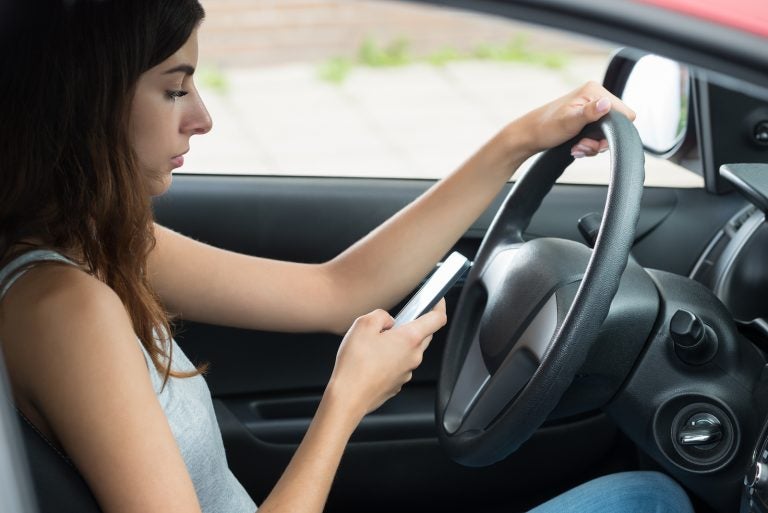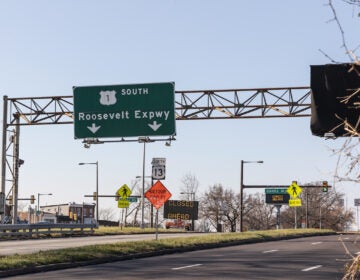To get people to put down their phones while driving, make it a game, Penn study suggests
Changing human behavior around phone use can be hard, but Penn researchers found that competition, rewards and regular feedback works.

(AndreyPopov/BigStock)
From Philly and the Pa. suburbs to South Jersey and Delaware, what would you like WHYY News to cover? Let us know!
Dr. Kit Delgado, an emergency physician at Penn Medicine, says he’s seen too many patients come into the hospital after car crashes, often after getting rear-ended at stop signs.
“It was becoming clear that distracted driving was the leading cause of these rear-ended collisions,” he said.
Distracted driving is one of the leading causes of car accidents and related deaths, claiming more than 3,300 lives nationally in 2022, according to the National Highway Traffic Safety Administration (NHTSA).
Phone use and texting are among the biggest culprits, according to the NHTSA.
Delgado is also the faculty director of the Nudge Unit at Penn Medicine, a group of researchers looking for ways to get people to make good choices for their health. So Delgado wondered if there was a way to convince people to put the phone down while driving. He and colleagues have now set out to do just that.
The researchers recently released new study results showing that combining “do the right thing” motivation, positive reinforcement and small financial rewards in a competitive game format ultimately reduced phone use while driving by as much as 28%.
“We want to make it easy to do the right thing,” Delgado said. “And people really love competitions and leaderboards, so we thought that something like that, in ‘gamifying’ this, would be a way of providing a social incentive without necessarily having to add extra [reward] money.”
Researchers partnered with Progressive Insurance, which runs a program called Snapshot. It’s a voluntary opt-in program that offers drivers discounted insurance rates if they practice safe driving behaviors like avoiding sudden accelerations, late night driving and phone use.
These behaviors are tracked on a phone app. Delgado and his team used the same app to collect data and test programs like their “gamified” study to reduce phone use.
Participants were given phone mounts to install in their cars, which can already reduce the risk of distracted driving, Delgado said. Drivers were then sorted into groups of 10 based on their baseline average phone use.
Then, they would compete on a weekly basis to see which driver could reduce their phone usage in the car the most. They also had a weekly goal of reducing their phone use at least 10% from the previous week.
“And each time that they reached that goal, they advanced a level in a game and each time they backslid, they would lose a level in the game,” Delgado said.
Drivers also got regular feedback, tips and strategies on how to reduce phone use, like reminders to make their music selections at the beginning, start their GPS directions before putting the car in drive and to use hands-free calling or texting options when necessary.
All of this led to an average 21% reduction in phone use among participants. That increased to 28% when small financial incentives were added. Delgado said the study showed that drivers’ reductions in phone use and behaviors continued even after the 10-week game program ended.
He called the findings exciting and said he hopes car insurance companies and driver education programs can use a “gamified” strategy like this to reduce distracted driving overall and make the roads safer for everyone.
“I think it’s a win-win, because there’s a strong business model for these insurance companies to offer these types of programs for people to voluntarily participate where they can pay less money or have a more rewarding experience with their driving,” he said. “And if done correctly, we can design these programs to be more effective in reducing these risky behaviors.”

Get daily updates from WHYY News!
WHYY is your source for fact-based, in-depth journalism and information. As a nonprofit organization, we rely on financial support from readers like you. Please give today.





